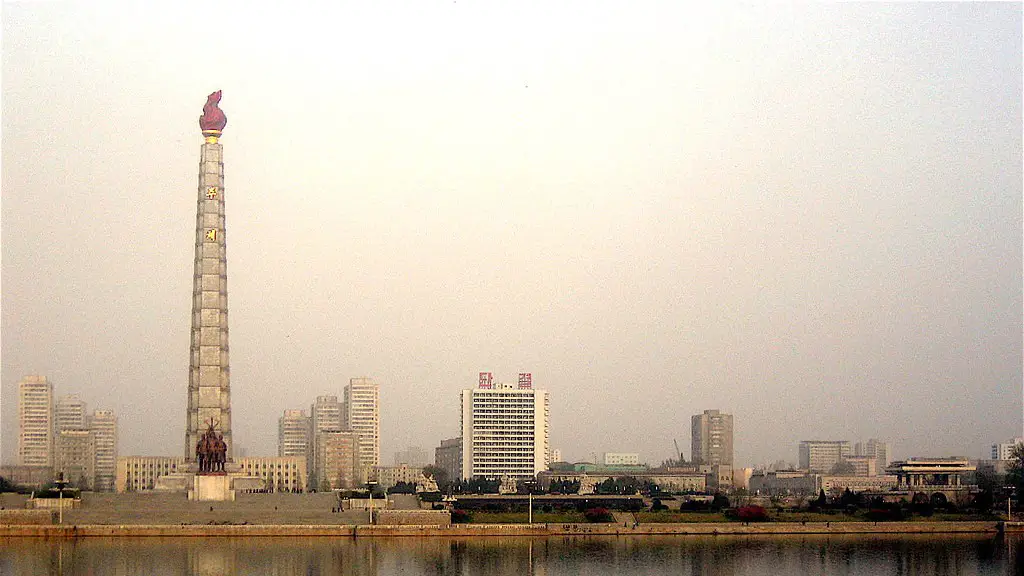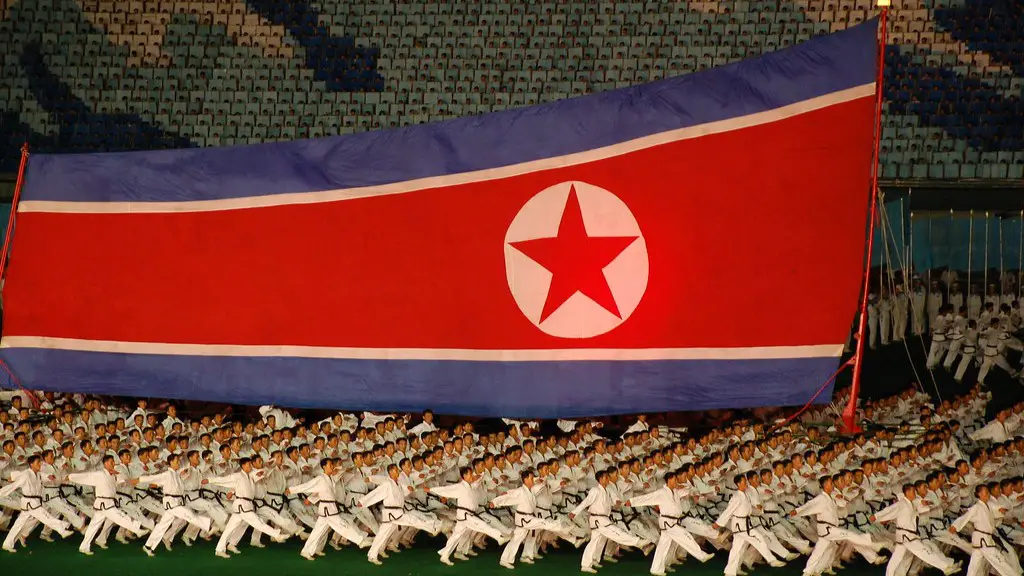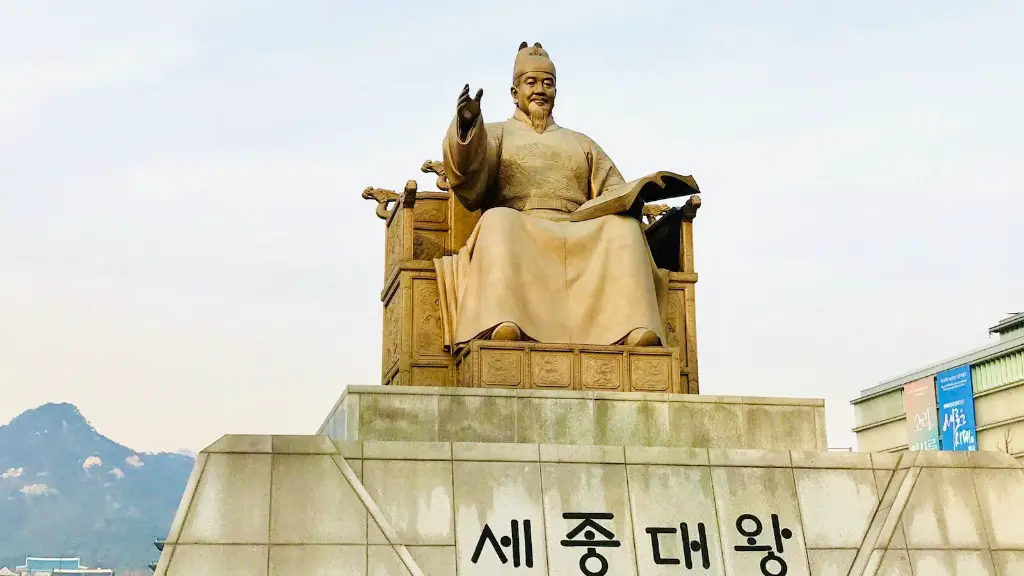History of the Korean Split
The Korean peninsula has been divided since the 1950s following a contentious war that eventually split the region into two nations. The northern part of the peninsula was annexed by the Soviet Union and declared itself the Democratic People’s Republic of Korea (DPRK), and the south remained a U.S.-backed republic known as the Republic of Korea (ROK). Although the Korean peninsula was one unified country prior to 1945, Soviet and U.S. influence during and following the Cold War led to the creation of two separate systems of government in the region.
After the war, the two nations recognized the 38th parallel as their border, splitting the peninsula along the roughly latitudinal line. Although initially founded as a temporary border, it eventually became known as the Demilitarized Zone (DMZ). The DMZ serves as a buffer between North and South Korea and is one of the most heavily guarded and militarized borders in the world.
In spite of the differences that led to the creation of the two nations, many South and North Koreans still share strong economic, cultural, and linguistic ties. Today, the countries continue to battle over issues related to the past while attempting to move forward in the face of uncertain relationships.
Political Reasons
Underlying the split between North Korea and South Korea is a disagreement over the most appropriate form of government. For example, North Korea has been accused of authoritarianism, human rights abuses, and oppressive policies, and South Korea has been characterized as a liberal democracy.
The description of “government” also reflects the ideological differences between the two countries. North Korea is formally a Marxist-Leninist state and is perceived by outsiders as a ‘Stalinist’ regime due to its cult of personality and extreme authoritarianism. Socially, North Korea has been described as a stronghold of Confucianism, with the importance of filial piety and ancestor worship being emphasized over individual autonomy.
On the other hand, South Korea is a representative democracy and has a more open economy. South Korea is also influenced by the teachings of Buddhism and is generally considered to be more open and welcoming of foreign visitors and investment. North Korea, in contrast, has been described as a hermit kingdom since it has tended to be closed to outsiders.
Economic Reasons
In addition to political differences, the two countries have distinct economic systems. North Korea has a centrally-planned economy while South Korea has a hybrid system comprised of both markets and government direction. North Korean citizens are subject to rationing, severe restrictions on the press and internet, and must adhere to the decisions of their authoritarian government.
South Korea has taken a different approach and embarked on a program of economic liberalization, privatization, and deregulation. As a result, South Korea’s economy is larger and more diversified than that of its northern neighbor. It has experienced large growth rates over the past four decades, making it one of the “Asian tigers”. South Korea is now a leading international exporter and importer.
Despite their political differences, North and South Korea have participated in economic exchanges in recent years. The two sides have occasionally agreed to allow workers to cross the border to conduct business, though the majority of foreign investment still flows to the wealthier South.
Social Reasons
The Korean split has created a divide between the people of the two countries. North and South Koreans have a different set of beliefs, values, and opinions. North Korea is a closed society, with tight restrictions on information and communication, while South Korea is a modern, open society with a strong emphasis on technology. The two countries also adhere to different cultural norms, with North Korean citizens embracing Confucianism and South Koreans embracing Buddhism.
The conflict has also had an effect on the language spoken in the region. North and South Koreans speak different dialects of the Korean language, even though they retain the same written language. This has caused a degree of cultural misunderstanding on both sides. In addition, the language barrier has served to separate the two countries even further.
In spite of their differences, North and South Koreans share a deep bond of kinship. Despite the political and economic obstacles posed by the division of the Korean peninsula, there have still been attempts to reconnect through family reunions and small-scale cultural exchanges.
Military Reasons
The military dimension of the Korean split is the most obvious. North and South Korea are still technically at war, as a formal peace treaty was never signed following the Korean War. The two armies continue to face off along the DMZ, which serves as a buffer zone and as a reminder of the tension and animosity that continues to exist between the two sides.
The presence of foreign forces has also played a role in the division of the peninsula. The military forces of the United States and China remain in the region and have been accused of stoking tensions between North and South Korea. The risk of a renewed conflict remains high and the potential for a nuclear conflict continues to loom.
Post-war Development
Though still deeply divided, both North and South Korea have made strides to improve their relations in recent years. There have been a number of diplomatic meetings between the two nations, leading to some progress in the form of economic cooperation and the easing of travel restrictions. Most notably, during a historic summit in 2018, North and South Korean leaders signed a declaration that promised to work towards a gradual reunification.
However, the process of reunification remains an uncertain one. There is still a long road ahead and both sides will need to overcome the obstacles they face in order to bridge the gap and reunite the two nations. Even if reunification is achieved, it will take time for the two countries to truly come together.
Relevance of the Split to International Affairs
The Korean split is of importance to international affairs for various reasons. It serves as a reminder of the dangers of an unchecked arms race, as well as the consequences of unchecked foreign intervention in other countries. Additionally, it serves as an example of how a country can be divided by ideology, culture, andlack of understanding.
The Korean split has also had a major impact on the region as a whole. The two nations have had a profound influence on the politics of East Asia, as well as the global balance of power. It has prevented peace and stability in the region, and has further complicated geopolitical negotiations between North Korea, South Korea, Japan, and the United States.
Achieving a lasting peace between North and South Korea is of global importance. The stability of the region, as well as progress towards reunification, are essential for all nations, and will contribute to the creation of a more secure and cooperative world.





